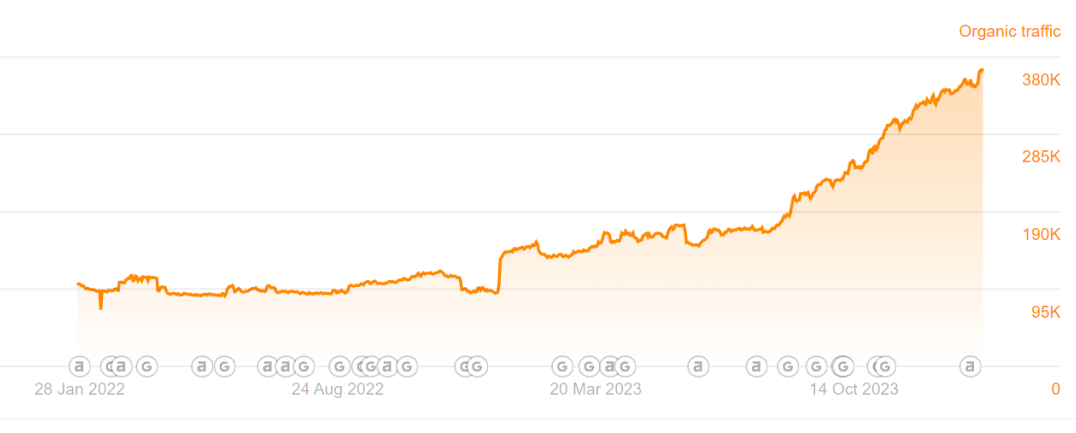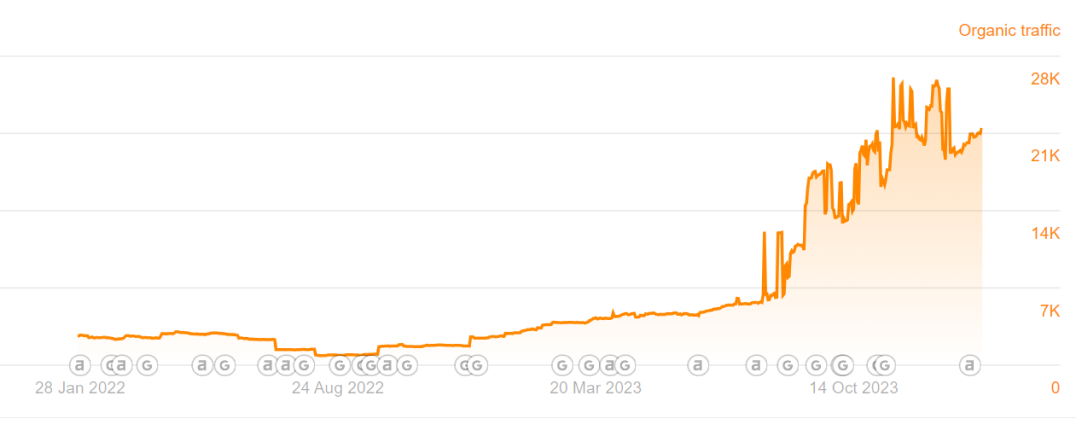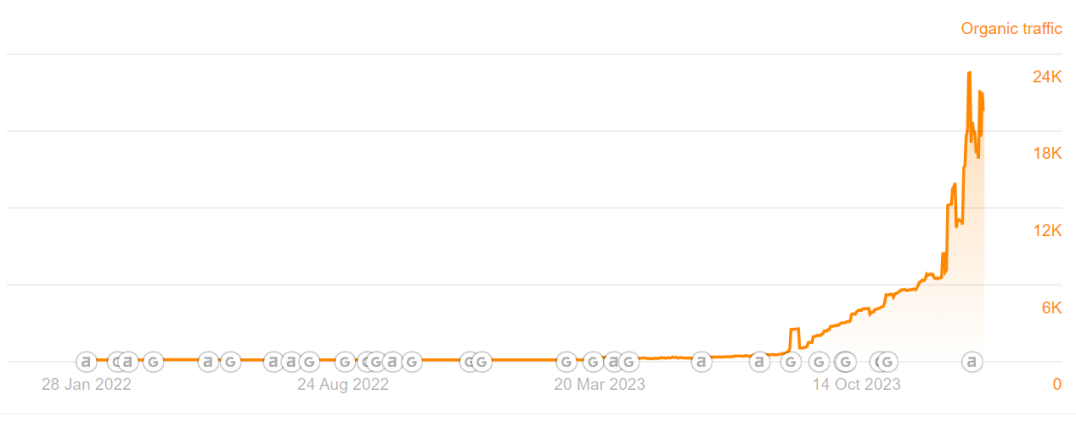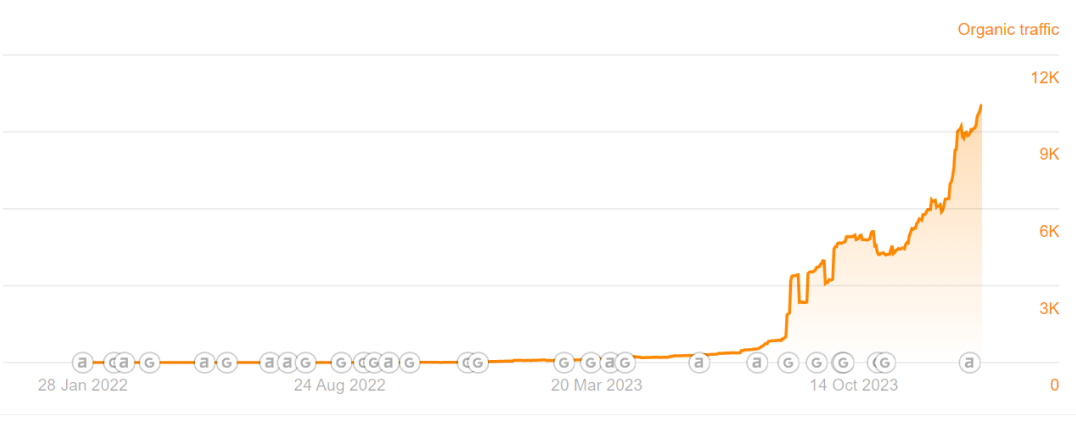Free link building strategy
Order a personalized link building strategy from experienced SEO experts. Within 48 hours, you’ll receive a ready-to-implement plan that effectively boosts your website’s visibility!
Get your free strategy now!
Hello!
We are a boutique SEO agency focused on collaboration distinguished by quality and experience, supported by years of cooperation with leading brands in Poland and abroad.
“In the realm of link building, we provide support for many large brands, marketing agencies, and media houses. Our strength lies in having our own modern link building platform, which aggregates over 1000 of our websites and provides access to over 100,000 external publishers from 30 different countries.
We have an extensive database of over 10,000 Polish publishers, enabling us to implement effective and precisely tailored SEO strategies in the local and global market.
Why it’s worth collaborating with us?

Quality
W naszej pracy, jakość jest kluczowym aspektem, który zawsze stawiamy na pierwszym miejscu. Dla nas najważniejsze jest dostarczenie produktów i usług za którymi idą skuteczne rezultaty.

Experience
In our work, quality is a key aspect that we always prioritize. For us, the most important thing is delivering products and services that yield effective results.

Partnership
We deeply care about the development and success of our clients’ businesses. Our goal is to support and grow together with our partners. We understand that the growth and development of our clients are synonymous with our own development.

Paweł Pawluk is an experienced SEO expert who has been developing his skills for over 10 years, working both in agencies and media houses. His experience includes collaborations with major brands in Poland and abroad, for whom he has created and implemented effective SEO campaigns. He is known for his focus on achieving results and offering the best solutions tailored to the budgetary constraints of clients.
How it works?
Brief
Send us the address of your website, the most important business keywords for you, domains of your competitors, and an approximate budget you would like to allocate for link building activities.
Analysis
Our specialists will analyze your industry, keywords, their competitiveness, and your competition in the search engine. Based on this, they will prepare the best possible recommendations
Strategy
We will prepare a link building strategy for you based on data. We will tailor it to your budgetary constraints and in line with the priorities of the categories and keywords we will develop together.
Implementation
The implementation of the link building strategy can be on your side, in a self-service model on our platform, or you can delegate it entirely to our team
See Contentation user reviews
The results are evident.
As part of our business, we frequently collaborate with well-known brands, reputable agencies, and media houses. Although non-disclosure agreements (NDAs) require us to maintain the highest level of confidentiality in many projects, we are proud to showcase our collaboration with a diverse group of partners who have consented to the publication of results. This allows us to present specific outcomes and achievements that best demonstrate the effectiveness and value of our efforts:
Dietly.pl
Our collaboration with Dietly.pl has yielded impressive results – we’ve witnessed over a threefold increase in the site’s visibility in the TOP 10 search results, as well as a threefold increase in organic traffic levels, according to data from Ahrefs. Our efforts primarily focus on developing the content section, technical on-site optimization, and conducting effective link building activities. We continue our fruitful collaboration, maintaining dynamic growth and strengthening Dietly.pl’s position in the market.

Galeriausmiechu.pl
Our collaboration with Galeriausmiechu.pl has yielded spectacular results – since its inception, we have witnessed nearly a tenfold increase in organic traffic. Thanks to our efforts, the website now occupies top positions in searches for dental services in Krakow and Nowy Sacz. Additionally, we are actively developing the blog section, which has become a key element in brand building and attracting new clients. Our focus remains on further strengthening Galeriausmiechu.pl’s position as a local leader in its industry.

Pozdental.pl
Our collaboration with Podental.pl is a prime example of an effective marketing strategy. Starting from the ground up, we have managed to build impressive organic traffic, reaching a scale of 25,000 monthly visits according to estimates from Ahrefs. We are comprehensively responsible for the technical optimization of the website, development of content, and positioning. Our efforts are focused on strengthening the clinic’s position in the local market. Additionally, we manage and develop a blog, which is a significant element in building authority and trust among patients, as well as attracting new clients to Podental.pl clinic.

Estetique-wroclaw.pl
Our collaboration with Estetique-wroclaw.pl has been yielding excellent results from the very beginning. We have managed to generate steady traffic of 10,000 visits per month, according to estimates from Ahrefs, and importantly, this number continues to grow steadily. We are responsible for comprehensive management of the blog, contributing to increased visibility and interest in the brand. Additionally, our efforts include technical optimization of the website and focus on effective local positioning, allowing for even better reach to potential clients in the Wroclaw region.



